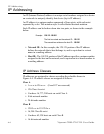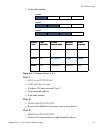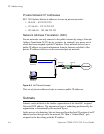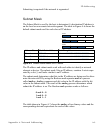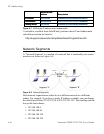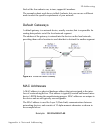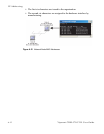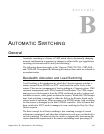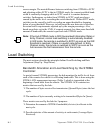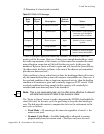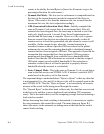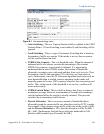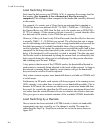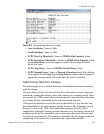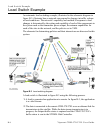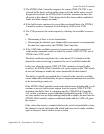
Load Switching
B-2 Vipersat CDM-570/570L User Guide
excess margin. The main difference between switching from STDMA to SCPC
and adjusting within SCPC is that in STDMA mode, the current available band-
width is constantly changing while in SCPC mode it is constant between
switches. Furthermore, switches from STDMA to SCPC mode are always
caused by the traffic level exceeding the switch threshold. Within SCPC mode,
switches can be caused by traffic exceeding an upper threshold or dropping
below a lower threshold. However, in both cases the new data rate is based on
the actual traffic requirements adjusted up by the margin percentage. Also,
based on policies set in the VMS, if a remote requests less than some threshold
amount of bandwidth, the remote in put back into STDMA mode.
Note: If the Hub STDMA mode is GIR (Guaranteed Information Rate) or
Entry Channel, normal load switching is automatically disabled.
In GIR mode, the remote is switched to SCPC as soon as the GIR
threshold is reached, if there is a switch rate defined. In Entry
Channel mode, the remote is switched to SCPC as soon as the
hub receives the first transmission from the remote.
Load Switching
The next sections describe the principles behind Load Switching and Rate
Adjustment (Step Up / Step Down).
Bandwidth Allocation and Load Switching by the STDMA
Controller:
As part of normal STDMA processing, the hub monitors the traffic levels from
each of the remotes for which it is allocating bandwidth. This is done using the
STDMA ACK management message (Table 1) which is transmitted at the
beginning of each burst from the remote. The STDMA ACK contains two
metrics that are used by the hub:
1. The number of bytes received for transmission (Queued Bytes) since the last
cycle.
2. The number of bytes currently waiting to be transmitted (Bytes In Queue).
These metrics are used by the hub for 3 purposes:
1. Determine the amount of STDMA bandwidth (slot size) to allocate in the
next cycle.
2. Provide statistics of the amount of activity at each remote (Average Bytes
Received).
NOTE



